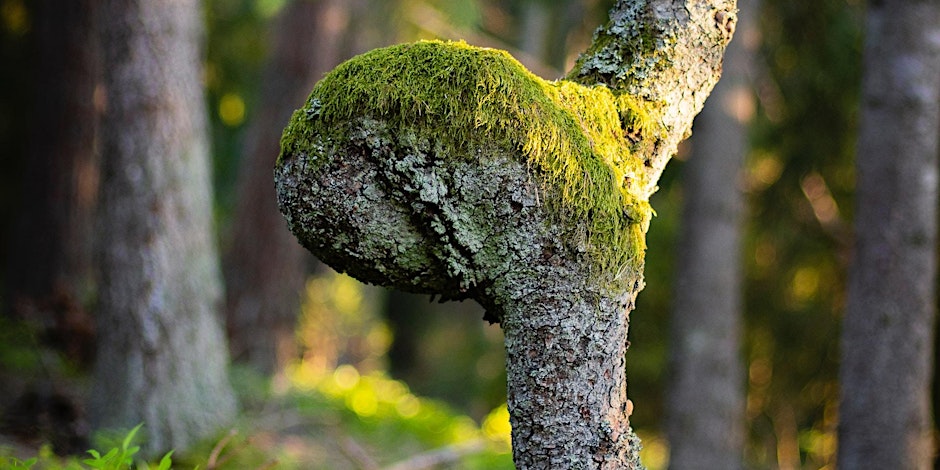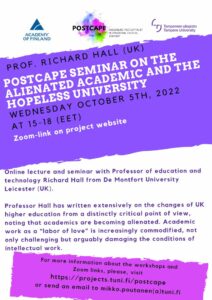Back in December 2021 I began working with Inny Accioly (Fluminense Federal University, Rio de Janeiro, Brazil) and Krystian Szadkowski (Adam Mickiewicz University in Poznań, Poland), on a Palgrave International Handbook of Marxism and Education. We hope that the Handbook will be published in late 2023.
Our overview noted that:
The Handbook to Marxism and Education is an international and interdisciplinary volume, which provides a thorough and precise engagement with emergent developments in Marxist theory in both the global South and North. Drawing on the work of authoritative scholars and practitioners, the Companion explicitly shows how these developments enable a rich historical and material understanding of the full range of education sectors and contexts.
The manuscript has now been delivered, with 30 chapters that seek to weave together stories, critiques, ways of knowing, and potential lines through, which address the starting point, in our introduction:
What is the role of education in the reproduction of the world? What is its role in capitalism’s valorization process? How do educational structures, cultures and practices reproduce the ways in which capitalism mediates everyday life for-value, through private property, commodity exchange, the division of labor and the market? In response to the alienating realities of twenty-first century life, how might we reimagine education for another world? These questions have gestated inside a space and time of polycrisis, or interconnecting crises of capitalist reproduction, ecosystem collapse and climate forcing, and misrepresentation and marginalization for some communities. In response, there is a renewed need for critiques that can unfold authentic and humane educational possibilities, beyond the commodity form.
Our intention has been to respect and reflect traditions of Marxist humanism, through the rich diversity of interpretation and applications of Marx in differing contexts. As a result, the chapters weave through the following.
- Core organizing and explanatory categories used by Marxists, including: abolition; abstract labor; abstraction; accumulation; alienation, class struggle; commodification; competition; dialectics; exploitation; expropriation; general intellect; historical materialism; human capital; labor-power; reproduction schemas; social reproduction; socially-necessary labor time; struggle; and, valorization.
- Theoretical and conceptual discussions of: the abolition of higher education; adult education; alienation and education; academic labor; the classroom; critical pedagogy; decolonizing the school; dialectical materialism; the educational Commons; educational reforms; feminist pedagogies; financialization of education; fixed capital and infrastructures; green Marxism, eco-socialism and pedagogy; Liberation Theology and education; Marxist-Humanism and women of color; measurement in education; needs in the capitalocene; onto-epistemologies and world changing; polytechnic education; queer Marxism as pedagogy; redistribution and public policy; research and commercialization in education; student movements; subsumption of education; workers’ education; and, value in education.
- Contextual discussions from Australia, Bhutan, Brazil, Chile, Columbia, England, Finland, India, Latin America, Mozambique, Poland, Romania, South America, Spain, and the United States of America.
I. In: Marxist modes and characteristics of analysis in education
A set of 12 chapters that develop thinking around core terms like dialectical materialism, value, subsumption and alienation, and which set those up theoretically, or in relation either to specific areas of practice, like liberation theology and adult education, or to Marxist authors, like Althusser.
- Introduction: the Relevance of Marxism to Education (Richard Hall, Inny Accioly and Krystian Szadkowski)
- Marx, Materialism and Education (Richard Hall)
- Value in Education: Its web of social forms (Glenn Rikowski)
- Breaking bonds: How academic capitalism feeds processes of academic alienation (Mikko Poutanen)
- The Class in Race, Gender, and Learning (Sara Carpenter and Shahrzad Mojab)
- Foundations and challenges of polytechnic education (Marise Nogueira Ramos)
- Liberation Theology, Marxism and Education (Luis Martínez Andrade and Allan Coelho)
- Marxism and Adult Education (John D Holst)
- In-Against-Beyond metrics-driven University: A Marxist critique of the capitalist imposition of measure on academic labour (Jakub Krzeski)
- Classroom as a site of class struggle (Raju J. Das)
- Science Communication, Competitive Project-based Funding and the Formal Subsumption of Academic Labour Under Capital (Luis Arboledas-Lérida)
- Commodification, the Violence of Abstraction, and Measuring Socially Necessary Labor Time: A Marxist Analysis of High-Stakes Testing and Capitalist Education in the United States (Wayne Au)
- The reproduction of capitalism in education: Althusser and the educational Ideological State Apparatus (Toni Ruuska)
II. Against: Emerging currents in Marxism and education
Chapters that place critique in context, as being Against: Emerging currents in Marxism and education. These chapters develop their analyses globally or regionally, in relation to key themes like financialization, decoloniality and Green Marxism or Environmentalism, and also by queering our engagement with Marxism or focusing on student movements.
- Critique of the Political Economy of Education: Methodological Notes for the Analysis of Global Educational Reforms (Inny Accioly)
- The beginnings of Marxism and Workers’ Education in the Spanish-speaking Southern Cone: The case of Chile (María Alicia Rueda)
- Commodification and Financialization of Education in Brazil: trends and particularities of dependent capitalism (Roberto Leher and Hellen Balbinotti Costa)
- Critical environmental education, Marxism and environmental conflicts: Some contributions in the light of Latin America (César Augusto Costa and Carlos Frederico B. Loureiro
- Green Marxism, Ecocentric Pedagogies and De-capitalization/Decolonization (Sayan Dey)
- Indian Problem to Indian Solution: Using a Racio-Marxist Lens to Expose the Invisible War in Education (Linda Orie)
- Re-reading socialist art: the potential of queer Marxism in education (Bogdan Popa)
- Making sense of neoliberalism’s new nexus between work and education, teachers’ work, and teachers’ labor activism: Implications for labor and the Left (Lois Weiner)
- Contemporary Student Movements and Capitalism. A Marxist Debate (Lorenzo Cini and Héctor Ríos-Jara)
III. Beyond: Marxism, education and alternatives
Chapters that focus our attention Beyond: Marxism, education and alternatives. These chapters lead us into dialogue with human needs and the idea of social reproduction, and thinking about these issues in public policy and HE. We deliberately end by discussing the world otherwise, in relation to feminist counter-geographies from the South, decolonial feminisms, and a deep, relational activism
- Revisiting and revitalizing need as non-dualist foundation for a (r)evolutionary pedagogy (Joel Lazarus)
- Reproduction in Struggle (David I. Backer)
- State and Public Policy in Education: From the Weakness of the Public to an Agenda for Social Development and Redistribution (Felipe Ziotti Narita and Jeremiah Morelock)
- Marxism, (Higher) Education and the Commons (Krystian Szadkowski)
- Marx, Critique, and Abolition: Higher Education as Infrastructure (Abigail Boggs, Eli Meyerhoff, Nick Mitchell, and Zach Schwartz-Weinstein)
- Toward a Decolonial Marxism: Considering the Dialectics and Analectics in the Counter-Geographies of Women of the Global South (Lilia D. Monzó and Nidžara Pečenković)
- The (im)possibilities of revolutionary pedagogical-political kinship (m)otherwise: The Gifts of (Autonomous) Marxist Feminisms and Decolonial/Abolitionist Communitarian Feminisms to pedagogical-political projects of collective liberation (Sara C. Motta)
- Marxism in an Activist Key: Educational Implications of an Activist-Transformative Philosophy (Anna Stetsenko)
There is also a Series Editor’s Afterword: weaving other worlds with, against and beyond Marx (Richard Hall).
Whilst the Handbook criticizes capitalist education, and attempts to present the reader with perspectives for overcoming its alienating realities, it is also subject to its effects. In inviting authors and curating the chapters, sickness and work overload have disproportionately affected women and groups systemically made marginal. It grieves us that these invited voices are not present, because of the everyday realities of survival inside capitalism. This reiterates the importance of the work that we must undertake, of liberation through mutuality and dignity in action. It reiterates the importance of material and historical solidarity, as a pedagogical process emanating from within and across society.
A more diverse spread of chapters was commissioned but proved impossible to deliver. This would have included more work: from national liberation struggles in the Middle East and North Africa; in theory generated from Sub-Saharan Africa; in the praxis of community struggles in alternative cultural systems, like that of India; and, from the development of Marxism in China. Such analyses would also have drawn in thinkers not represented here in detail.
However, as editors, we encourage readers to engage with our Handbook as a contribution to the rich archive detailing how Marx’s work has been infused with concrete, material struggles. In so-doing, we ask readers to reflect upon their own work in relation to what Marx and Engels called communism, which, as the infinite process of critique, is ‘the real movement which abolishes the present state of things.’
In reflecting upon the gift of sitting with these 30 chapters, I infer that they offer a consensus that our ontological, epistemological and methodological horizons must push against the law of value. Yet they also unfold myriad ways of analyzing with Marx how we might move through intellectual work in society, such that a new form of becoming accepts and shapes the individual as a many-sided being (in dialogue with other, many-sided beings). At the heart of the matter then is our ability in-common to tell stories of dignity and mutuality that generate the courage and faith to imagine and make concrete the voices of the dispossessed:
Everything for everyone. Until this is true, there will be nothing for us.

